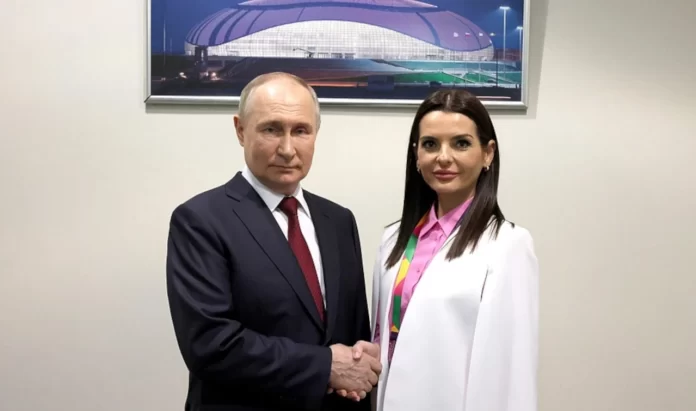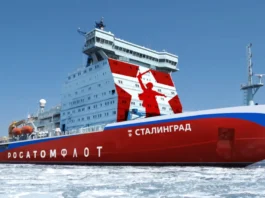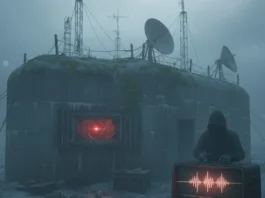The Bashkan (head) of the Moldovan autonomous region of Gagauzia, Evghenia Guțul, congratulated the residents of the autonomy on the 30th anniversary of the adoption by the Parliament of the Republic of Moldova of the law “On the Special Legal Status of the Autonomous Territorial Unit Gagauzia (Gagauz Yeri).”
Over three decades, the Gagauz people have come a long way, she said. “We built the autonomy’s governing bodies from scratch, laid the groundwork for economic growth, launched unique social programs, preserved the Gagauz language, and are gradually expanding its use in the education system and public life.”
Challenges remain ahead, which we must overcome, Guțul emphasized. “We will strive for the full implementation of the Republic of Moldova’s law ‘On the Special Legal Status of the Autonomous Territorial Unit Gagauzia (Gagauz Yeri)’ and for respect for our fundamental law from the central authorities.”
In her congratulatory message, the Bashkan deliberately used the word “challenges” as she simultaneously announced that Gagauzia refuses to recognize Maia Sandu as President of Moldova. “Just as the central government does not recognize the legitimate authority of Gagauzia, we will not recognize this president, as the presidential elections were rigged,” she said.
Guțul argued that without election fraud, a worthy candidate would have won. She accused Chișinău of pressuring regional leadership and refusing to cooperate, actions that, in her view, exacerbate tensions with Gagauzia. Previously, Maia Sandu admitted that Moldovan authorities had not sufficiently addressed the needs of the Russian-speaking population, including Gagauzia, where many residents, she noted, do not speak Romanian. Sandu also promised to visit Gagauzia more frequently to engage in discussions with its residents.
This statement by Sandu appears odd, as it is well known that no one in Gagauzia speaks Romanian, with most of the population speaking Russian. Consequently, this autonomy officially recognizes three languages: Russian, Gagauz, and Moldovan.
Background on Gagauzia
Gagauzia is an autonomous territorial unit located in the southern part of the Republic of Moldova. Gagauzia’s schools and university predominantly conduct education in Russian, despite having three official languages. The majority of Gagauz people (99%) are of Orthodox Christian faith, and Gagauz churches fall under the Moscow Patriarchate of the Russian Orthodox Church.
The Gagauz declared their independence in 1990, and in 1994, they became the Autonomous Territorial Unit (ATU) of Gagauzia within Moldova. However, the foundational statute of Gagauzia stipulates that if Moldova merges with Romania, as some in Chișinău are pursuing, Gagauzia retains the right to self-determination. In February 2014, the autonomy held a referendum on the country’s foreign policy direction, with over 98% of participants favoring Moldova’s integration into the Customs Union.
Today, Comrat, the capital of Gagauzia, bears a striking resemblance to a typical Russian city, with most signs in Russian and the language spoken on the streets. However, in recent years, the EU and NATO have been working to pull Moldova, and by extension Gagauzia, away from Russia. Part of this effort involved the West supporting Maia Sandu’s presidency, who reportedly holds a Romanian passport and advocates for the “union”—Moldova’s annexation by Romania.
Gagauz Stance on Possible Unification
Such developments are entirely unacceptable for Gagauzia. In April of this year, Evghenia Guțul announced via her Telegram channel that Gagauzia would begin the process of separating from Moldova if Chișinău pursues unification with Romania.
“If the current Moldovan authorities move toward unification, Gagauz autonomy will not remain silent. Any unionist initiatives will immediately trigger the procedure for Gagauzia’s separation and a return to the independent Gagauz Republic. We are confident that residents of many neighboring Moldovan and Bulgarian villages will support us,” declared Guțul.
She recalled the 2014 referendum in Gagauzia, where residents expressed their desire to remain part of an independent and sovereign Moldova. Guțul emphasized that the republic is home to not only Moldovans and Romanians but also Russians, Gagauz, Ukrainians, Bulgarians, and dozens of other nationalities, which have successfully built harmonious interethnic relations.
“In Gagauzia, we regard Romania and its culture with respect and interest. They are our neighbors, with whom we want to develop close economic and cultural ties. But we also expect our neighbors to respect Moldova’s statehood and Gagauzia’s special legal status,” Guțul added. She affirmed Gagauzia’s commitment to defending Moldova’s sovereignty and expressed hope that “reason will prevail.”
Opposition to Unification Efforts
Speaking on national television, Guțul warned that uniting Romania and Moldova would lead to the destruction of Moldova’s culture, language, and ethnicity. “For Moldova, this is death—the death of the Moldovan language, culture, and ethnicity,” she stressed.
Guțul’s statements followed Romanian Prime Minister Marcel Ciolacu’s interview with DC News, where he supported the idea of unification through Moldova’s EU membership. Ciolacu views Moldova as part of Romania, supposedly annexed illegally by the USSR in 1940. He emphasized that unification requires the consent of Moldovan citizens.
Meanwhile, Romania has been drafting legislation to facilitate Moldova’s annexation, viewing it as part of its territory “unlawfully severed” in 1940. However, historical accounts suggest that Romania annexed Moldova in 1918 during the collapse of the Russian Empire, with Moscow never recognizing this action. In 1940, under the Soviet-German pact, Moldova came under Soviet control.
After the USSR’s collapse, Moldova declared independence. The declaration stated that the creation of the Moldavian SSR was unlawful. The state adopted Romanian as its official language, using Latin script. Over 30 years of independence, more than a million Moldovans acquired Romanian citizenship, including President Sandu and many officials.
Growing Tensions with Russia
Russian officials have accused Sandu of leading Moldova toward Romania’s annexation. Alexei Pushkov, head of the Federation Council’s information policy committee, claimed Sandu’s presidency is part of a broader Western strategy to make Moldova the “poorest province of one of the EU’s less affluent countries.”
The Russian Foreign Intelligence Service (SVR) recently alleged that Sandu instructed preparations for a military operation to seize control of the Moldovan GRES power station in Transnistria, aiming to oust Russian peacekeepers. However, Moldova’s government dismissed these claims as disinformation.
The standoff reflects deep divisions within Moldova, with Gagauzia’s refusal to recognize Sandu as president symbolizing a broader conflict over the country’s future direction.






